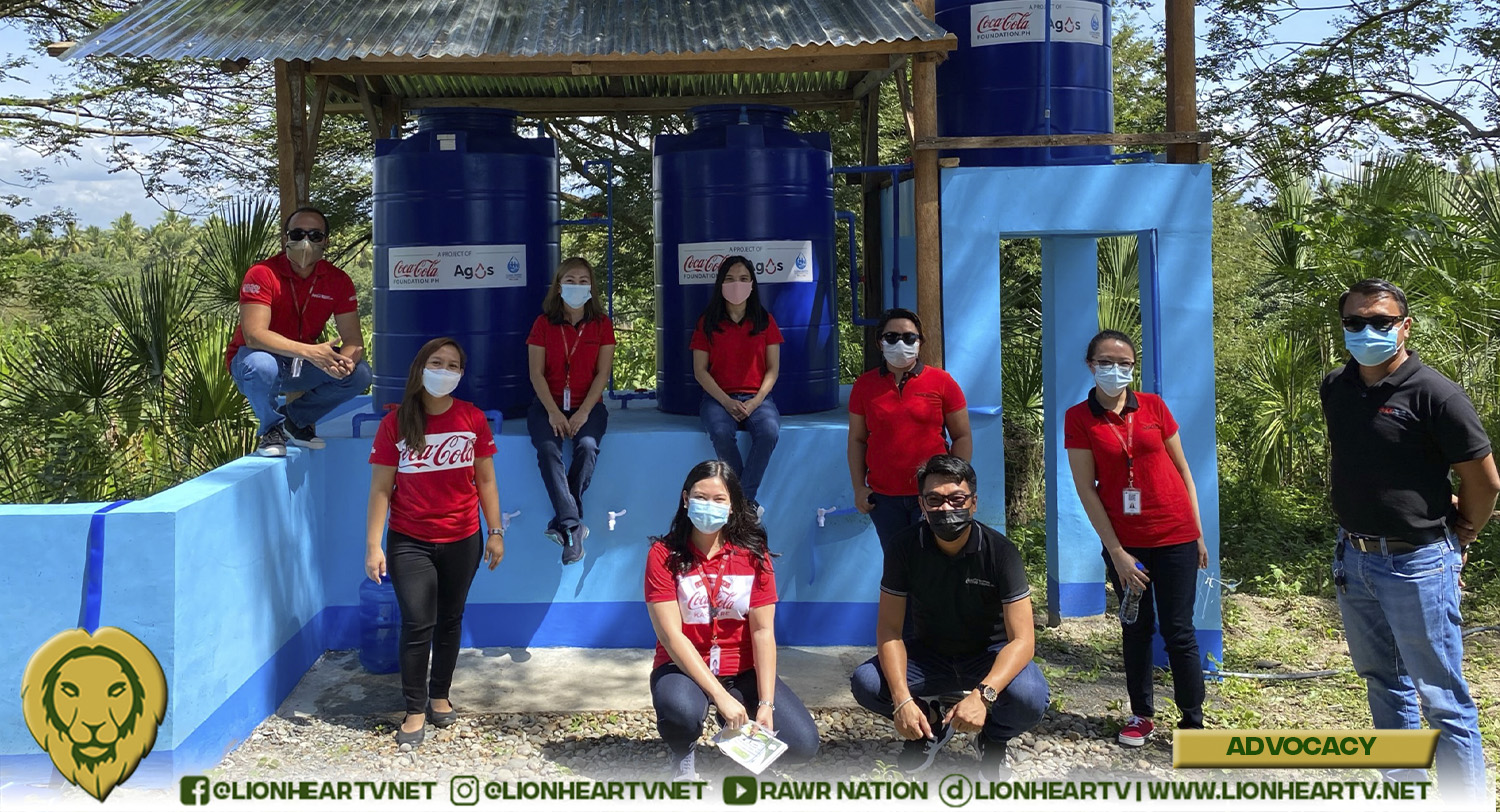Access to clean water for handwashing continues to be very important in the Philippines’ campaign against COVID-19. For people in big urban centers, the safety of handwashing comes easy and without much thought as water flows freely on tap. But for some remote communities, people need to take risky and long journeys to collect water for their families.
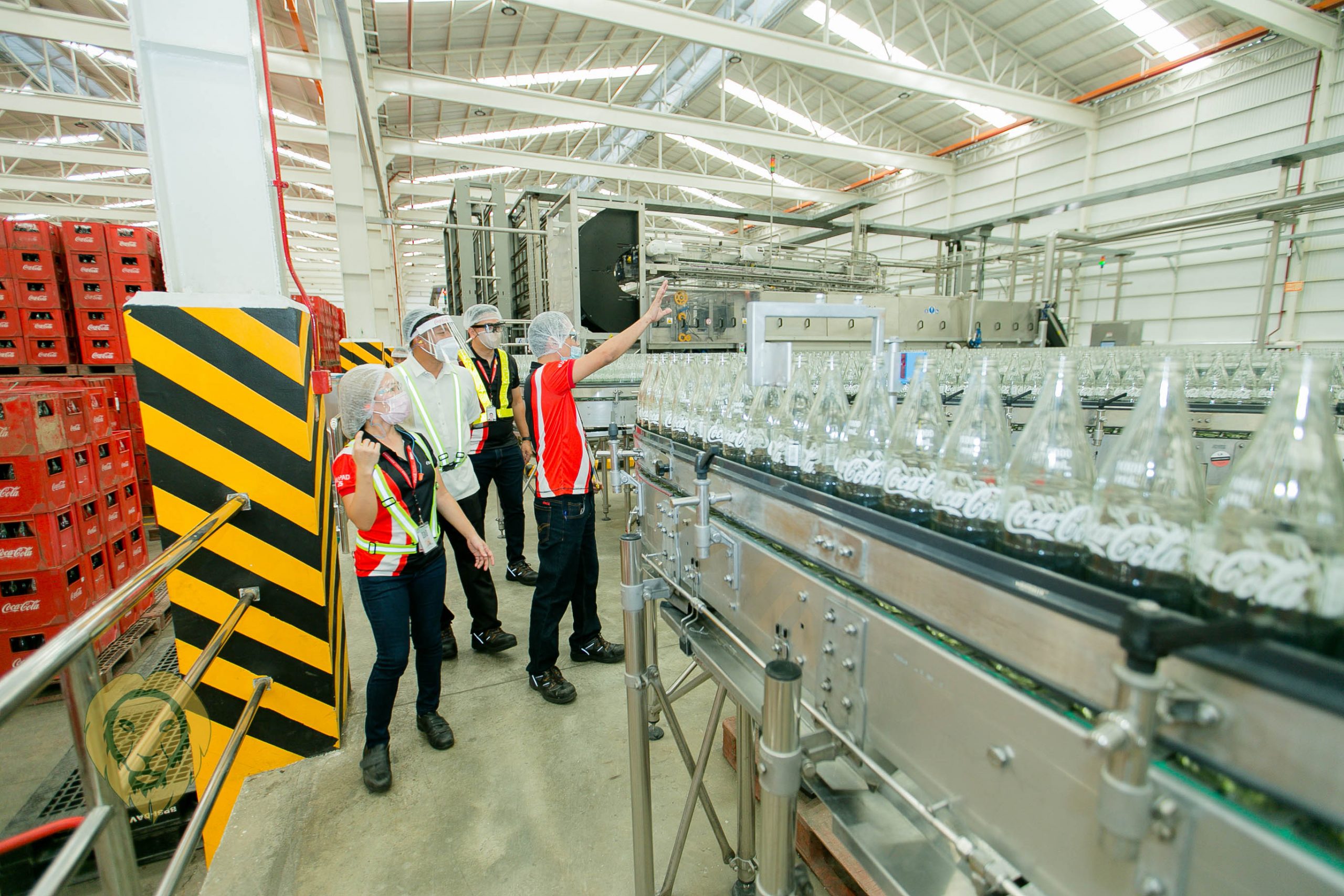
Despite the country being surrounded by large bodies of water, the irony is that one in 10 Filipinos still do not have access to the water resources necessary to sustain simple activities like handwashing, cooking, and cleaning.
Coca-Cola Philippines, the country’s leading beverage company, is therefore taking seriously its commitment to make a greater impact on communities with its 2030 water strategy. Water stewardship has long been a business imperative for Coca-Cola, but the company aims to do more to increase water use efficiency in the production of its beverages and to help communities address local water resource challenges such as the availability of clean water.
Clean and safe water for communities
Coca-Cola’s global 2030 Water Security Strategy focuses on three priorities involving operations, communities, and watersheds: Reducing shared water challenges around the world, enhancing community water resilience, and improving the health of priority watersheds.
“We have a long history in the Philippines and around the world of supporting local water stewardship programs and we’re committed to doing more,” said Tony Del Rosario, Coca-Cola Philippines President and VP for Franchise Operations for the ASEAN and South Pacific Unit-East Asia Region. “For us, it’s a business imperative. Water is essential to our products and the communities where we operate.”
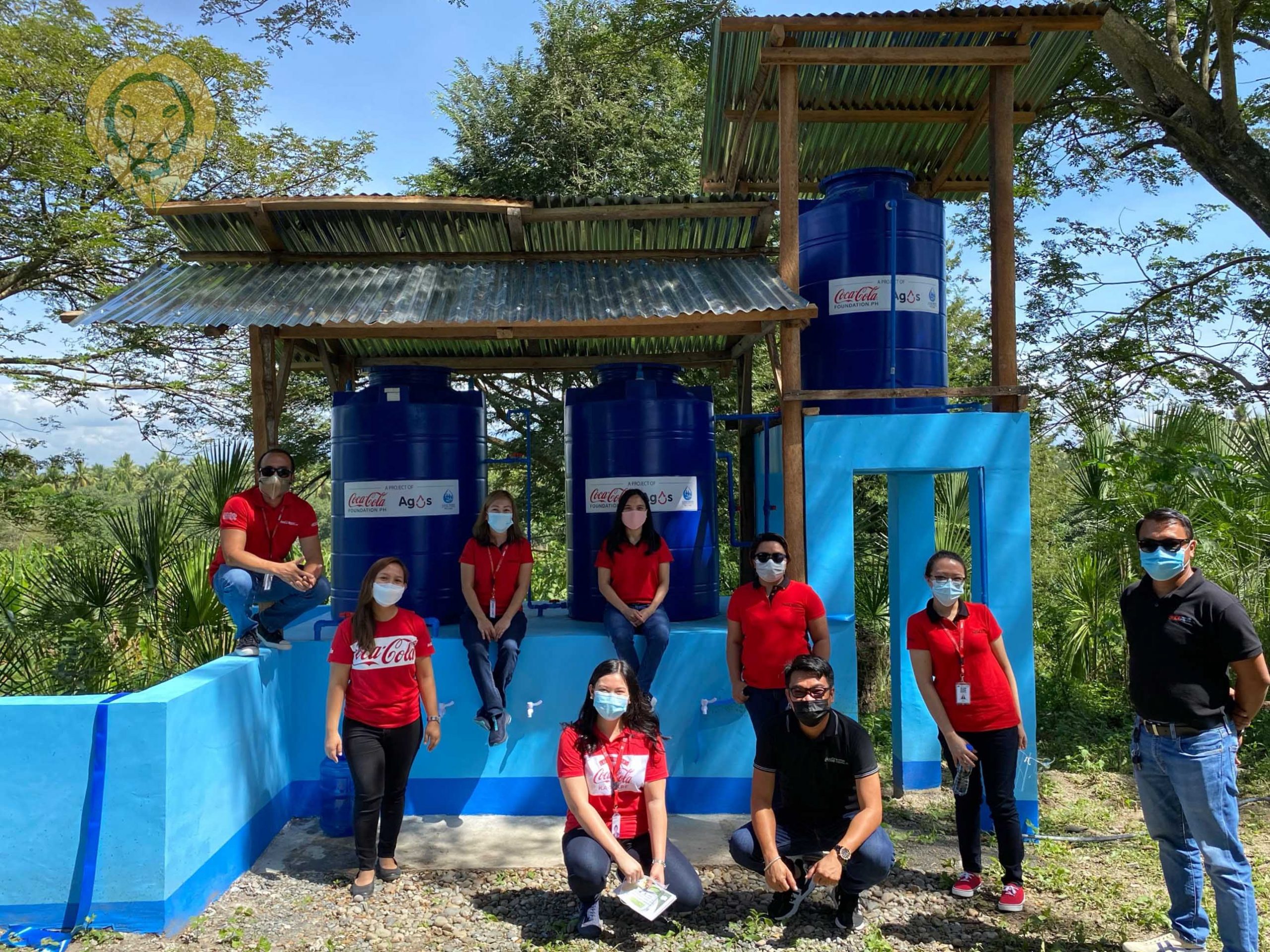
Through its social investment arm, Coca-Cola Foundation Philippines, the company is also giving back to the communities and nature with long-term water-driven initiatives. Since 2011, the Foundation’s Agos Program has coordinated with local partners in making safe water accessible to underserved communities.
One such community is Barangay Kulasi in Sumilao, Bukidnon, where the collaborative effort of Coca-Cola Foundation and Del Monte Foundation led to the establishment of a Level 2 Water System in March 2020. The project has given the community of approximately 600 residents closer access to clean and safe water for daily household consumption. This project also provided training and education on proper water stewardship to ensure long-term impact.
From a single faucet, 25 communal faucets are now functioning, effectively eradicating extreme poverty in Barangay Kulasi. Residents and local government units then continued the work to develop a Level-3 water system, providing 98 out of 154 families with water access within their own households this year. Savings from the initial project grant were also utilized to rehabilitate part of the existing Level-2 water system to enable continuous supply of safe water to 120 families in Sitio Basin, Brgy. Kuya in Maramag, also in the province of Bukidnon.
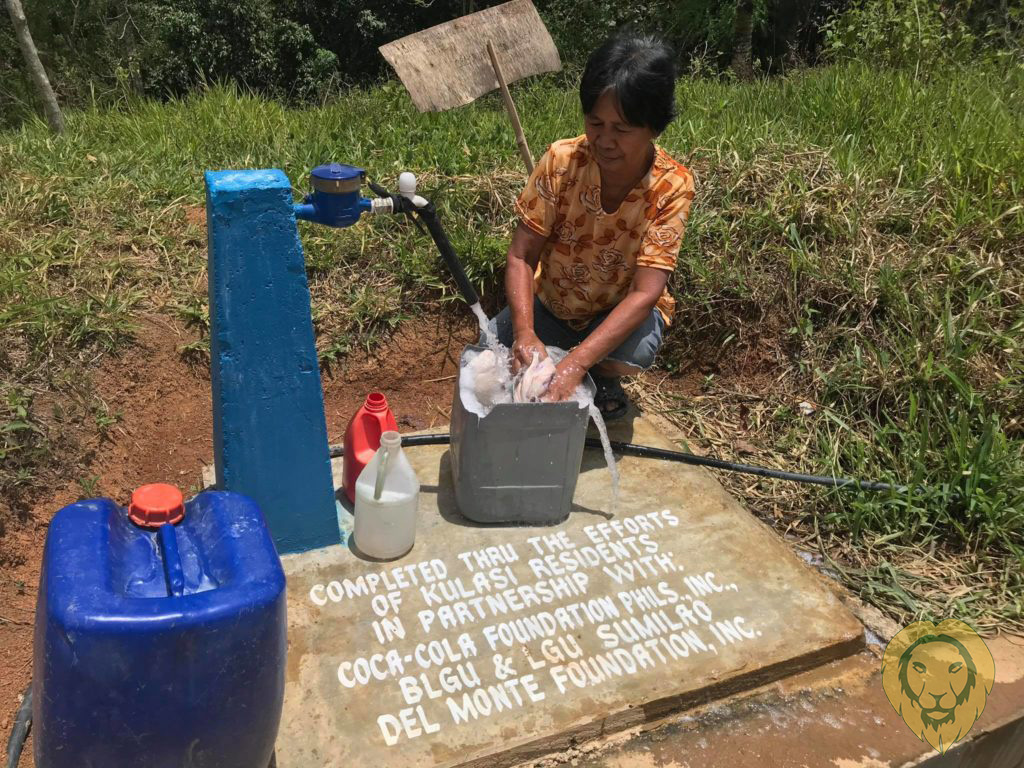
“We’re committed to these ongoing types of community programs and we intend to sustain the focus and engagement. We are thankful to our supportive partners for making sustainable programs like Agos touch and improve the lives of many Filipinos,” said Cecile Alcantara, President of Coca-Cola Foundation Philippines.
Industry-leading water initiatives
In recognition of its industry-leading water management practices, Coca-Cola Beverages Philippines, Inc. (CCBPI)—the bottling arm of Coca-Cola in the country—was recently awarded best in Water Resource Management by the European Chamber of Commerce of the Philippines (ECCP) during its first Europa 2020 awards.
The citation for CCBPI’s intensive and comprehensive water efficiency programs, which it applies in the operations of all of its 20 plants, covers water-saving initiatives — smart design for optimal bottle washing, reducing unnecessary backwashing, recovering and reusing water for maintenance tasks — and its use of advanced technologies. The latter includes the company’s state-of-the-art wastewater treatment facilities that process used water to a quality that is viable for return to the ecosystem.
The company continues to strengthen its water efficiency in all of its bottling facilities. In 2020, this translated to a 31% decrease in absolute water consumption and an improvement in its water use ratio, or the amount of water used per liter of beverage produced. Its top performing plants in terms of water efficiency include its manufacturing sites in Davao del Sur, Misamis Oriental, and Bacolod.
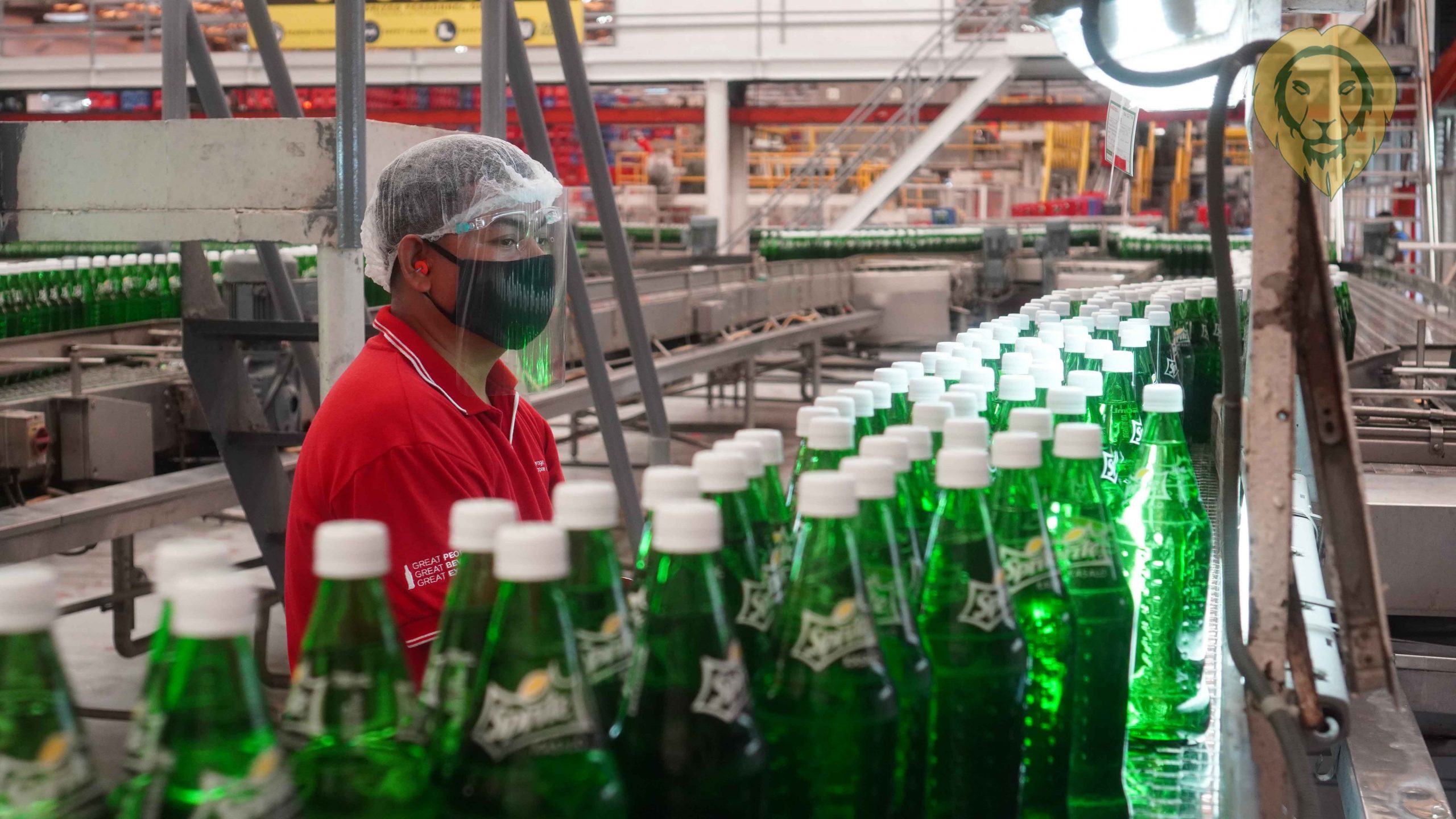
“Our promise is that every bottle of Coke is being made with the highest standards of safety and quality—and integral to this is our holistic approach to sustainability,” said Gareth McGeown, President & CEO of Coca-Cola Beverage Philippines, Inc. “Our water management systems are best-in-class, and this is just one facet of an entire infrastructure that also includes the integration of energy efficiency and sustainable packaging into our operations. From water stewardship and responsible energy use to ensuring that our bottles are returnable and 100% recyclable—we are committed to being a company whose service to local communities is anchored on sustainability.”
In the Philippines, Coca-Cola continues to exceed its goal of balancing or “replenishing” the same amount of water it uses to make its beverages. An estimated 132% water replenishment rate has been achieved in the Philippines through the company’s water savings initiatives, operational efficiencies in manufacturing sites, as well as through community water programs such as Agos. Through its new 2030 Water Strategy, Coca-Cola pledges to continue going beyond good for the communities they serve and supporting water security for its operations, local communities and watersheds.
To learn more about Coca-Cola’s Water Strategy, visit www.coca-colacompany.com/sustainable-business/water-stewardship.

